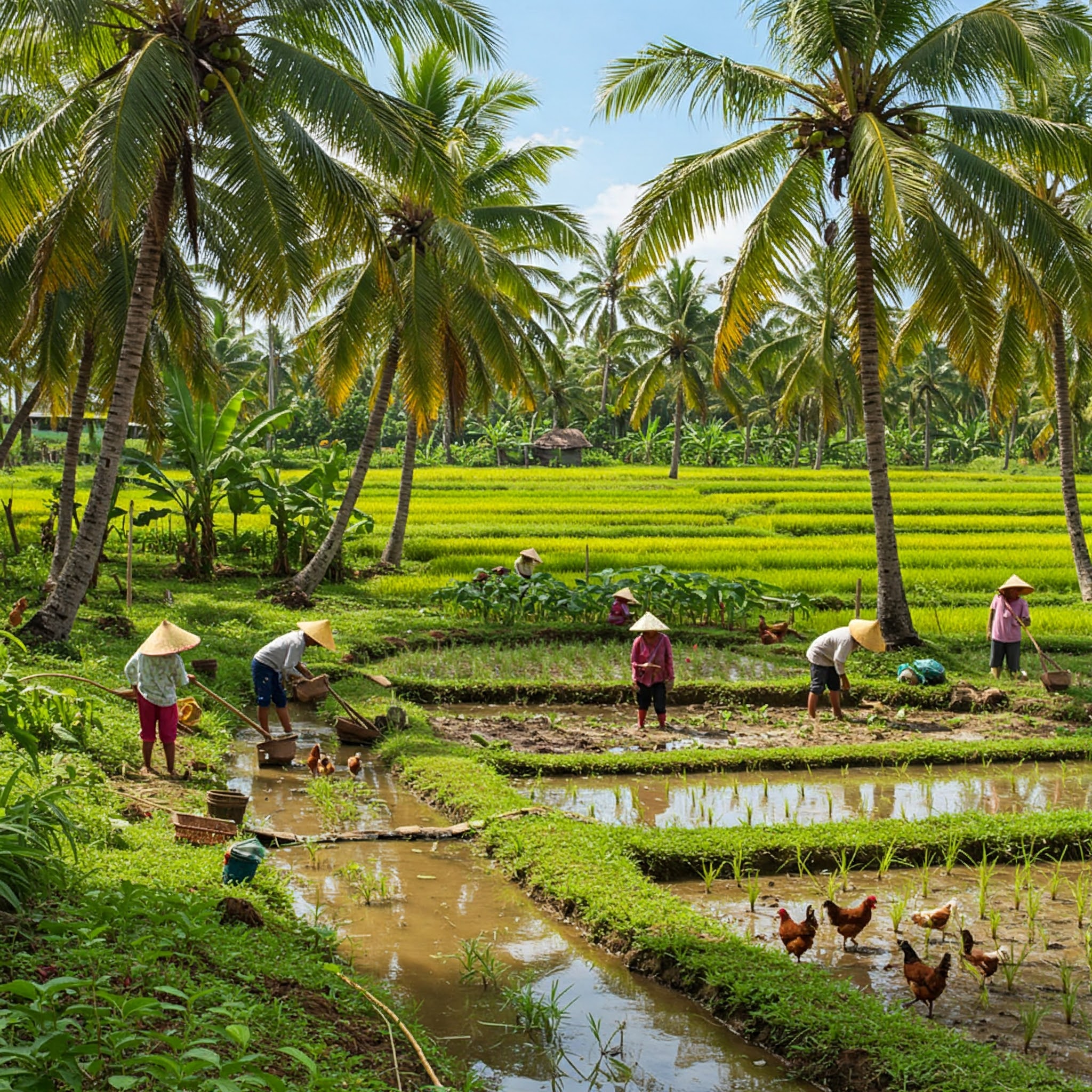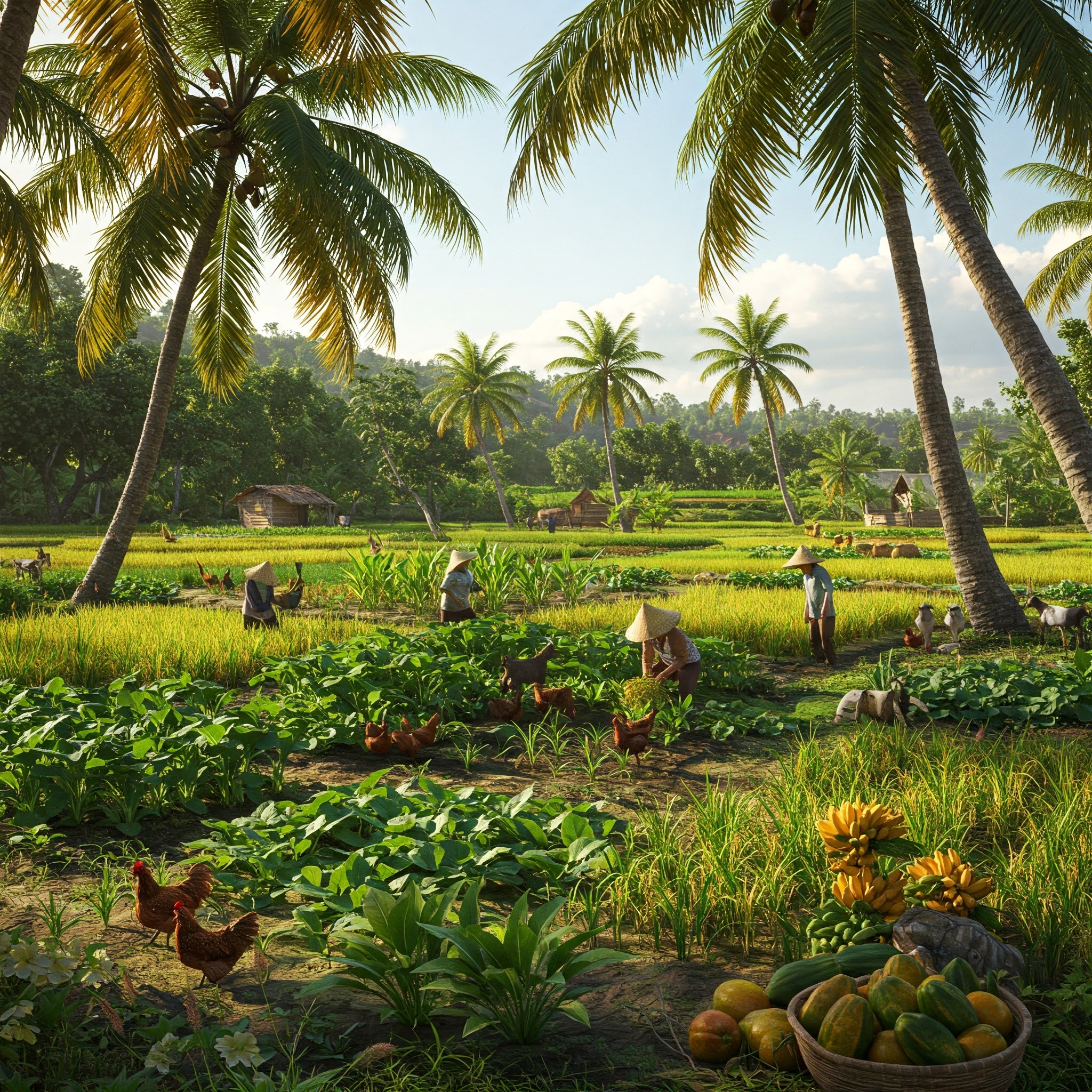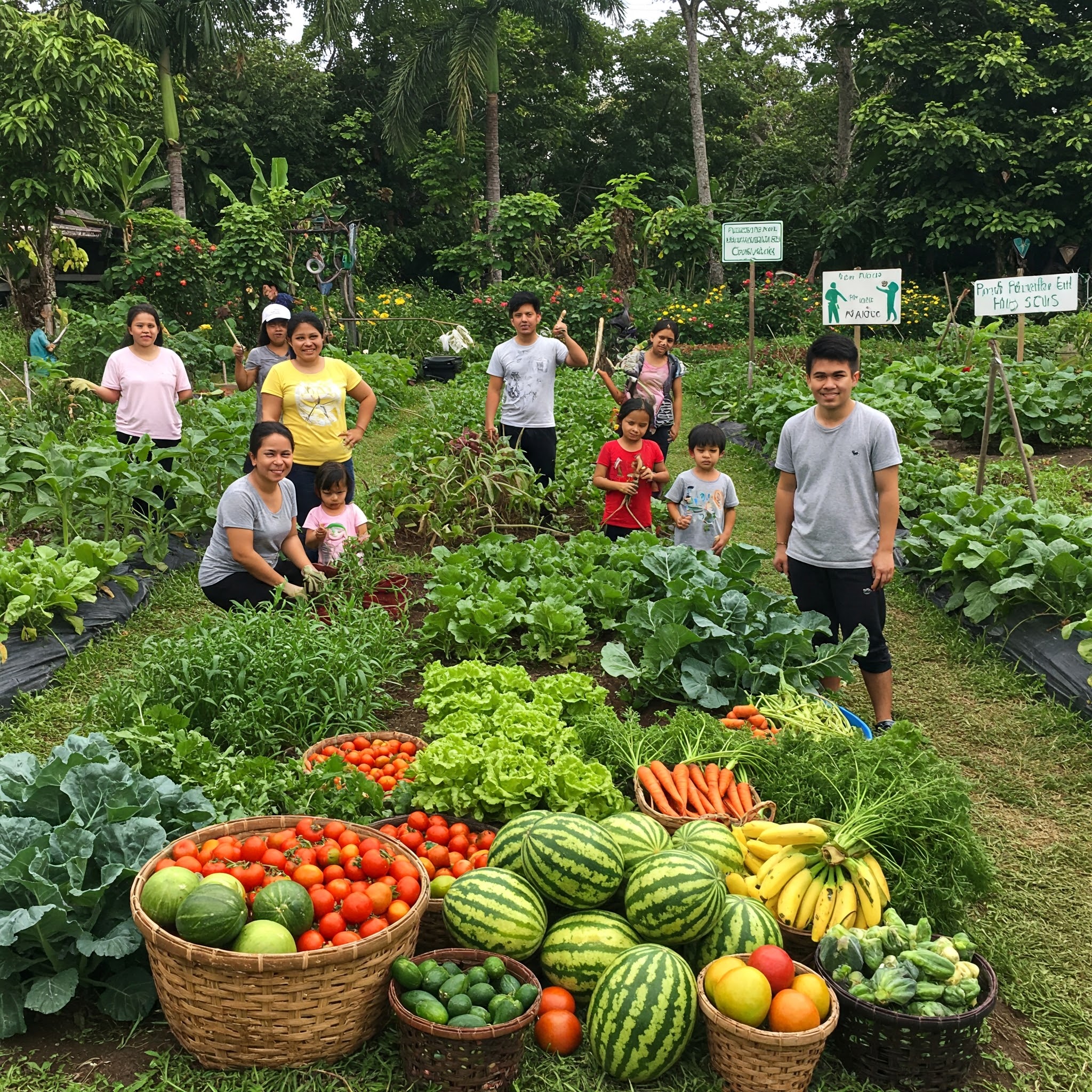Integrated Diversified Organic Farming Systems (IDOFS)
Building Resilient Food Systems

Building Resilient Food Systems

In the face of climate change, market uncertainties, and global disruptions like the COVID-19 pandemic, agricultural communities worldwide are seeking more resilient and sustainable approaches to food production. In the Philippines, SALIKA Agriculture Cooperative has been pioneering a comprehensive solution that addresses these challenges: Integrated Diversified Organic Farming Systems (IDOFS).
Integrated Diversified Organic Farming Systems represent a fundamental shift away from conventional monocropping toward a holistic approach that mimics natural ecosystems. Rather than focusing on a single crop grown with chemical inputs, IDOFS integrates various agricultural components into a harmonious, self-sustaining system.
Since 2004, SALIKA Cooperative has been implementing IDOFS as their core program to combat the challenges of "chemical monocropping, climate change, and marketing of our products," particularly among their primary members who are rice farmers engaged in organic colored rice production.

SALIKA members implementing IDOFS practices in Oriental Mindoro
The IDOFS approach implemented by SALIKA incorporates several complementary elements:
The true test of any agricultural system is how it performs under stress. When COVID-19 lockdowns were implemented in the Philippines in March 2020, SALIKA's IDOFS approach demonstrated extraordinary resilience.
Farms with fully implemented IDOFS systems were able to meet 80-90% of their families' food and nutritional requirements for extended periods—up to six months—without external inputs. This remarkable self-sufficiency provided a critical buffer when markets closed and transportation was limited.
As Jon Sarmiento of SALIKA notes, IDOFS proved to be "a sound strategy for climate change and disaster risk reduction and management." What was developed primarily as an environmental sustainability measure revealed its value as crisis protection during the pandemic.
IDOFS works because it applies ecological principles to agriculture:
Transitioning to IDOFS begins with thoughtful farm planning. SALIKA emphasizes that "planning is very important in the transition from conventional farming to organic agriculture."
The planning process helps farmers "identify weaknesses, threats, opportunities, and strengths" in their specific context, leading to sustainable farm development strategies. This isn't about overnight transformation but rather a carefully managed transition that considers each farm's unique conditions.
One of the most compelling aspects of IDOFS is its accessibility. The approach emphasizes techniques that are "proven doable, low-cost, adaptable to the changing climate," according to SALIKA's experience.
Rather than requiring expensive equipment or inputs, IDOFS leverages ecological processes and locally available resources. This makes it particularly suitable for smallholder farmers with limited financial resources, who make up the majority of food producers in many regions.
Beyond individual farms, IDOFS strengthens entire communities. By organizing farmers into small clusters, SALIKA facilitates knowledge sharing, resource pooling, and collective market access.
The approach also values and develops local expertise, with SALIKA recommending investment "in developing farmer technicians and extension" since "the government technician is not as good as the farmer itself." This farmer-to-farmer knowledge transfer has proven highly effective in spreading sustainable practices.
The impact of IDOFS extends beyond food production to encompass several dimensions:
As global challenges like climate change intensify, approaches like IDOFS become increasingly relevant. SALIKA's experience demonstrates that this isn't just a theoretical model but a practical, tested system that delivers tangible benefits to farming communities.
The success of IDOFS in the Philippines offers valuable lessons for agricultural communities worldwide. By embracing diversity, integration, and ecological principles, farmers can build resilience while producing healthy food and caring for the land.
For regions facing uncertain futures due to environmental or economic challenges, IDOFS provides a pathway to greater self-reliance and sustainability—a proven approach that works with nature rather than against it.
For more information about implementing IDOFS in your community, contact SALIKA Agriculture Cooperative at salikatrade@gmail.com or visit their center in Bayanihan Village, Lalud, Calapan City, Philippines.

Rapid establishment of community gardens providing fresh produce for households, especially during crises like the COVID-19 pandemic.
Learn more
Facilitating seed sharing among members and maintaining community seed banks to preserve biodiversity and ensure access to quality seeds.
Learn more